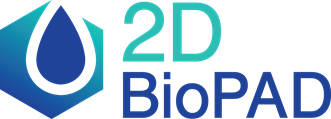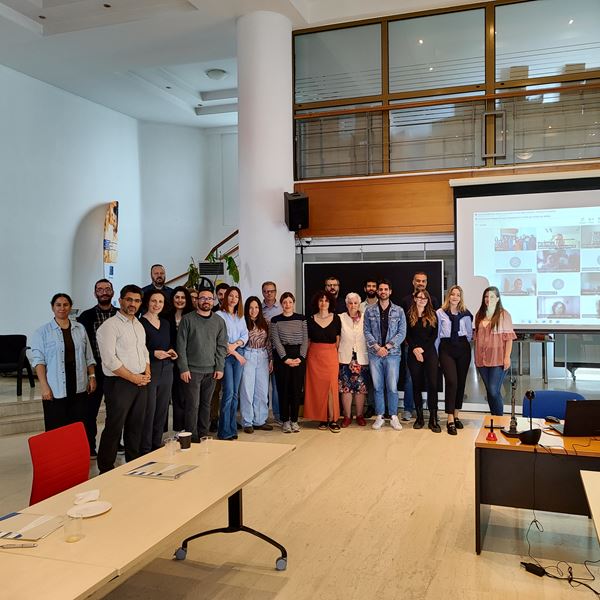
2D-BioPAD
Supple Graphene Bio-Platform for point-of-care early detection and monitoring of Alzheimer’s Disease


2D-BioPAD is pioneering a graphene-based Point of-Care (PoC) In-Vitro Diagnostics (IVD) system for early Alzheimer’s Disease (AD) detection. This non-invasive solution, using 2D materials, can identify and quantify up to 5 AD biomarkers in real time. Clinical pilot studies in Finland, Greece, and Germany aim to demonstrate its impact, with a focus on safety, ethics, and seamless integration into primary healthcare settings.
Project Clinical Centres
The 2D-BioPAD system and its impact will be demonstrated in 3 clinical centres in Europe - University of Eastern Finland, GAADRD, and ZI - under two clinical pilot studies.

Each centre will provide access to existing diagnosed biological samples, including supporting information such as demographics, comorbidities, cognitive assessments, as well as other valuable health records towards allowing not only the effective development of the 2D-BioPAD devices, but also its user-centred evaluation and validation. Read more here.
Project Technologies
The 2D-BioPAD aims to achieve its goal by combining various technologies and methodologies, including graphene-based biosensing, aptamers, magnetic nanoparticles, microfluidics, and artificial intelligence. Read more here.
Project Partners
Learn more about our consortium here.
Follow us on:
Related articles


Enabling EU-funded project collaboration for brain health R&I
Enabling EU-funded project collaboration for brain health R&I

2D Materials Innovation for Biomedical Applications
RIA PULSE: 4 HORIZON EUROPE PROJECTS IN ACTION















